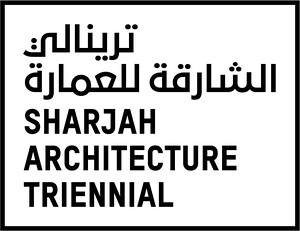Permanent new headquarters at Al-Qasimiyah School and decommissioned Vegetable Market to host
November 9, 2019–February 8, 2020
Sharjah
United Arab Emirates
The inaugural Sharjah Architecture Triennial is the first major platform to invite dialogue on architecture and urbanism in the Middle East, North and East Africa, South and Southeast Asia. Running from November 2019 until February 8, 2020, and curated by Adrian Lahoud, the Triennial—titled Rights of Future Generations—rethinks fundamental questions about architecture and its power to create and sustain alternative modes of existence. An opening weekend programme of performances, forums and summits is scheduled from November 9–11.
Arising from the conviction that architecture can address climate change by emancipating itself from entrenched forms of hegemony and extractivism, Rights of Future Generations is an invitation to identify and question unspoken assumptions on which design has been based for so long. The Triennial posits one way of doing so is to pay attention to existing social struggles, including indigenous ones, against such paradigms. Crucially, such struggles often take place in territories that have found themselves at the frontline of climate change.
The Triennial is pleased to announce two recently decommissioned public buildings, the Al-Qasimiyah School and the old Al Jubail Vegetable Market, as its main exhibition venues. The venues resonate with the broader themes of the triennial through a commitment to adaptive reuse and intergenerational legacy. Both venues, leading examples of 1970s and ’80s architecture across Sharjah and the wider United Arab Emirates, will be variously activated by the participants’ projects displayed therein.
Architect Mona El Mousfy, Advisor to the Sharjah Architecture Triennial and currently leading the renovation of the Al-Qasimiyah School, further explains: “We consciously opted to work with the possibilities of existing structures in the city rather than start with a blank slate. Not only is this approach environmentally sustainable, but it also creates a layered architecture in continuous dialogue, building upon the city’s history and memories while responding to contemporary uses and evolving aspirations. We believe that thoughtful adaptive reuse of culturally valuable buildings supports the re-evaluation and transformation of architecture.”
Educational development was prioritized in the period following the UAE’s formation in 1971 and the Al-Qasimiyah School is based on the mid-1970s federal commission of an elementary school prototype designed by the engineering consultancy Khatib and Alami. Twenty-six such schools are distributed across Sharjah City as well as three Indian Ocean port towns of Dibba Al-Hisn, Khor Fakkan, and Kalba, and several others can be found across the Emirates. The renovated school is the first example of adaptive reuse of these recognizable UAE buildings. It retains a strong sense of the original structure as well as its educational purpose by creating an invaluable resource for a future generation of architects.
Led by Triennial advisor El Mousfy, who has recently been shortlisted for the Aga Khan Award for Architecture 2019, the renovation works to preserve the modern heritage of Sharjah. It offers a community hub, complete with a library, café and exhibition spaces, alongside the Triennial’s permanent headquarters. El Mousfy’s research-based design studio SpaceContinuum focuses on cultural and social spaces and dwellings; she has also served as the Architecture Consultant for the Sharjah Art Foundation since 2005.
The old Vegetable Market, adjacent to the central Al Jubail bus station, was built in the early 1980s and decommissioned when the new Al Jubail Vegetable Market opened in 2015. The curved arcade is part of the city’s old Jubail Souk complex, designed by the British engineering consultancy Halcrow Group—a firm that has played a significant role in the development of the region’s civil infrastructure. The choice of the market building as a venue anchors the Triennial within the context of Sharjah’s long history as a trade hub, with a vibrant, multi-ethnic landscape cultivated by migration and exchange.
Across these two venues, both definitive examples of Sharjah’s architecture, various participants will present projects that address specific conditions across the Global South in relation to architecture, colonialism and environment.
For more information please contact the Press Office at Pelham Communications, T: +44 (0) 20 89693959 | @pelhamcomms
Sophie Campos: sophie [at] pelhamcommunications.com or Eleanor Gibson: eleanor [at] pelhamcommunications.com
Founded by Khalid Al Qasimi in 2017, Sharjah Architecture Triennial is the first major platform for architecture and urbanism in the Middle East, North and East Africa, South and Southeast Asia. Participating in international conversations while anchored in the specificity of Sharjah and the United Arab Emirates, the Triennial offers new spaces for critical reflection that situates the built environment within its complex social, economic, and cultural contexts. Triennial programming invites dialogue that accommodates Sharjah’s rapid urban development amidst historical shifts, ongoing cultural encounters, environmental challenges, and aspirations for the future. Each edition of the Triennial will be led by a curator who spearheads a core programme of exhibitions, urban interventions, conferences and public talks with the participation of local and international practitioners and researchers.



